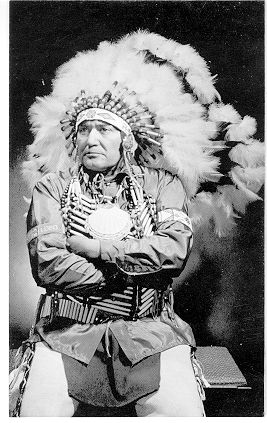Clarence H. Lobo facts for kids
Clarence H. Lobo (born September 12, 1912 – died July 1, 1985) was an important leader for the Acjachemen people. He was their elected spokesperson from 1946 until his death in 1985. He is well-known for trying to get 25 acres of the Cleveland National Forest back for his people.
This happened in 1964 when the U.S. government offered money to settle land claims. Lobo rejected this offer because it valued Native land at only 47 cents an acre. He also disagreed with the actions of the Bureau of Indian Affairs (BIA), a government agency dealing with Native American affairs.
The Clarence Lobo Elementary School in San Clemente was named after him. It opened in 1994 and was the first school in California to be named in honor of a Native American.
Contents
Early Life and Education
Clarence Lobo was born in San Juan Capistrano on September 12, 1912. He grew up on Los Rios Street, a historic area in the city. His family had deep roots in the region.
He went to San Juan Elementary School and Capistrano Unified High School. During his school years, he noticed that Native Americans were often left out of history lessons. Later, he found it hard to teach his own children about Native history because it was often ignored.
Clarence Lobo worked as a heavy-equipment operator. While working, he often found ancient Native artifacts. He made sure to move these important items out of the way of new construction.
Becoming a Leader
In 1946, Clarence Lobo was elected spokesperson for the Juaneño Band of Mission Indians (Acjachemen). He was 34 years old at the time. He traveled to Sacramento with his wife, Bess, who was from the Taos Pueblo tribe.
Lobo sometimes wore a full headdress, even though it wasn't a traditional custom for his tribe. He felt it was important to be seen as a strong leader. He believed it would help people take him more seriously.
In 1951, he spoke to a local Rotary Club. He explained that treaties signed in the 1850s had left out the Juaneño people. This meant they didn't get their own reservation or money for their land. This lack of official recognition from the government is still a big issue for the tribe today. They want their land back and rights to their ancestors' remains.
In 1963, Lobo represented his tribe in a lawsuit against the United States. He argued that Native lands were unfairly taken in 1848.
In 1964, Lobo ran for president of the Mission Indian Federation (MIF). He supported their view against the Bureau of Indian Affairs (BIA). He believed the BIA made Native people too dependent on the government.
The Cleveland Forest Land Claim
In 1964, the U.S. government offered $29.1 million to California Mission Indians. This money was meant to settle land claims for about 70 million acres. Clarence Lobo rejected this offer. He pointed out that the offer valued Native land at only 47 cents an acre. He also said that the land was lost through treaties that were never officially approved.
Lobo famously said, "By nature my people are trusting to the point of being gullible. California was admitted to the Union in 1850 on a rental basis, and we’re asking the government to buy it back honorably, if they want it."
To show his point, Lobo sent $12.50 to U.S. President Johnson. This money was for 25 acres of the Cleveland National Forest. He then set up a camp at that spot, which was an old village site called Piwiva. Lobo believed Native people wanted their land back, not just money.
Sadly, Lobo's trailer was broken into and damaged while he was away. President Johnson sent the $12.50 back to Lobo. He was told to contact the Forest Service office, but he received no response.
In an interview in 1964, Lobo spoke about an 1891 law. This law was supposed to give Native people 640 acres of land after it was lost to settlers. Lobo said this law, like many others, was broken. He hoped the government would finally keep its promise.
Later Life and Legacy
In 1972, the American Indian Movement took over the Bureau of Indian Affairs office. Lobo felt this action would not help the Native American cause.
He moved to Oroville, California in 1975 to be closer to one of his sons. Clarence Lobo passed away in Oroville on July 1, 1985, at the age of 72. He continued to visit his hometown often before his death.
The Clarence Lobo Elementary School in San Clemente opened in September 1994. It made history as the first school in California named after a Native American. About 300 people attended the opening ceremony. The school stated that its name should remind future generations of the positive impact one person can make.
In 1996, the University of California, Irvine (UCI) held a "Lobo Day Celebration" to honor his life. In 2022, his words were used in UCI's Indigenous Peoples' Day message. They highlighted a statement Lobo made in 1966 while walking on what would become the UCI campus: "Our children shall not know the experience of roaming over these rolling hills and listening to the wild birds as they talk to nature. Our footprints upon the sands of time shall be history to them."


